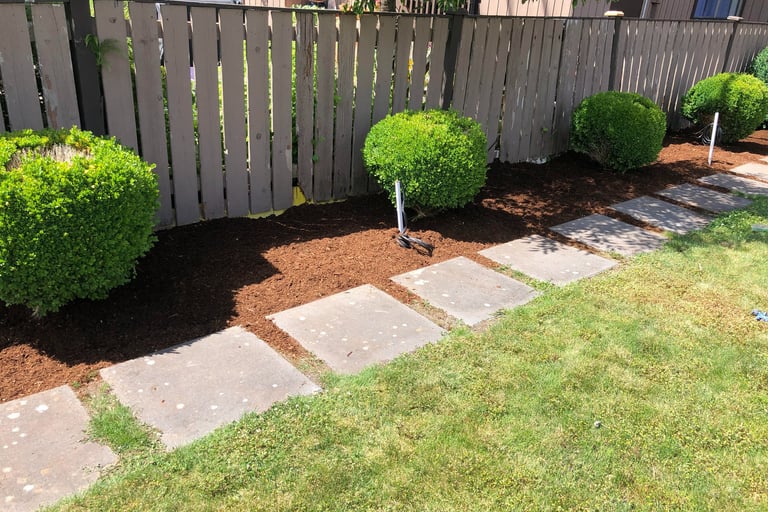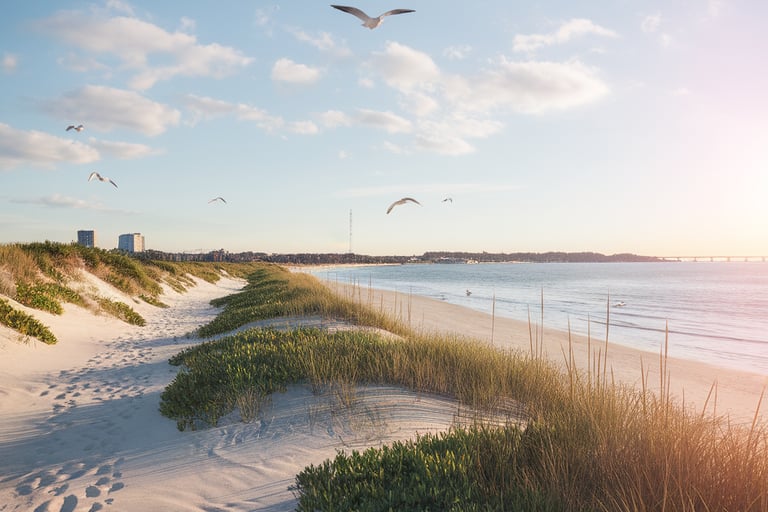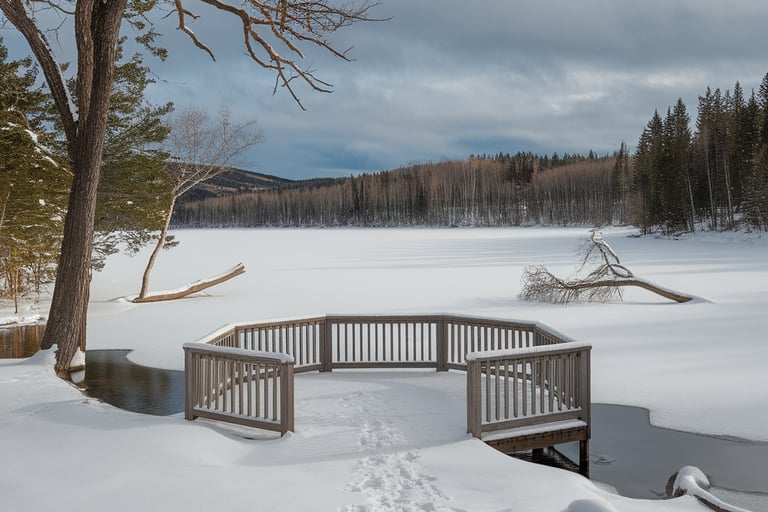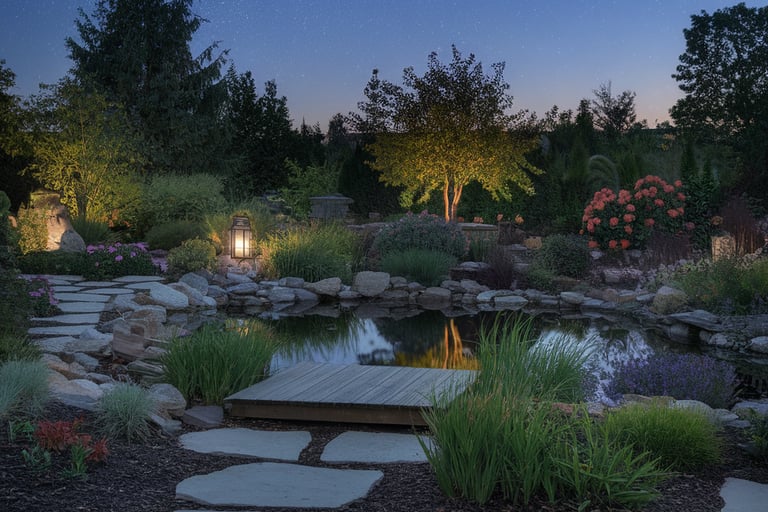
Year-Round Garden Maintenance Calendar for Vancouver
12/1/20247 min read
Year-Round Garden Maintenance Calendar for Vancouver: A Month-by-Month Guide
Maintaining a garden in Vancouver's unique climate requires specific knowledge and timing. Our mild, rainy winters and moderate summers create distinct challenges and opportunities for gardeners. This comprehensive guide will walk you through essential maintenance tasks for each month, specifically tailored to Vancouver's maritime climate and growing conditions.
Understanding Vancouver's Climate Pattern
Vancouver's climate plays a crucial role in determining when and how to maintain your garden. With an average of 169 rainy days per year and temperatures rarely dropping below freezing, our growing season is longer than most Canadian cities. According to Environment Canada's historical data, our climate allows for year-round gardening activities, though the intensity and focus shift with the seasons.
Early Spring (March-April)
Soil Preparation and Clean-up
March marks the beginning of active gardening in Vancouver. With average temperatures reaching 10°C (50°F), it's time to assess winter damage and prepare for the growing season. Start by checking your soil's pH levels - Vancouver's rainfall typically creates acidic soil conditions that may need adjustment. Local garden centers like GardenWorks or Art's Nursery can provide soil testing services and appropriate amendments.
The key tasks for early spring include:
Spring Pruning and Plant Care
March is the ideal time to prune winter-damaged branches and shape spring-flowering shrubs. According to the UBC Botanical Garden, proper pruning during this period promotes healthy growth and abundant blooming. Pay special attention to hydrangeas, which are particularly popular in Vancouver gardens. Remove dead wood and shape the plants before new growth appears.
Late Spring (May)
May is a crucial month for Vancouver gardens. With the last frost date typically behind us (Vancouver's last frost date is usually early April), it's time for major planting activities. The soil has warmed sufficiently, and spring rains provide ideal conditions for establishing new plants.
Planting and Fertilizing
This is the perfect time to visit local nurseries like Phoenix Perennials in Richmond for native plants and perennials suited to our climate. Consider plants like Salal, Oregon Grape, and Pacific Bleeding Heart, which are well-adapted to Vancouver's growing conditions.
Summer Preparation
As temperatures begin to rise, prepare your irrigation systems. Vancouver summers have become increasingly dry in recent years, with July and August often seeing extended periods without rain. Install water-efficient irrigation systems that comply with Metro Vancouver's watering restrictions.
Early Summer (June)
Pest Management and Disease Control
June's warming temperatures can bring increased pest activity. Monitor for common Vancouver garden pests like aphids, slugs, and chafer beetles. The City of Vancouver's Integrated Pest Management program provides excellent guidelines for environmentally responsible pest control methods.
Watering Strategies
Establish proper watering routines following Metro Vancouver's regulations. Water deeply but infrequently to encourage deep root growth. Consider installing rain barrels to capture our abundant spring rainfall for summer use. Local suppliers like Rain Barrel Source offer Vancouver-compliant collection systems.
Mid-Summer (July-August)
Heat Management and Water Conservation
July and August typically bring Vancouver's driest period, with average rainfall dropping to less than 40mm per month. During this time, mulching becomes crucial. Apply a 2-3 inch layer of organic mulch, available from local suppliers like Western Turf Farms or Richmond Soil & Mulch. This helps retain moisture and keeps root systems cool during our increasingly warm summers.
Summer Pruning and Maintenance
Despite common misconceptions, summer pruning is essential in Vancouver's climate. Focus on removing water sprouts and controlling the size of spring-flowering shrubs. The Vancouver Master Gardeners Association recommends pruning spring-flowering shrubs like rhododendrons and azaleas immediately after blooming to ensure next year's flower development.
Vegetable Garden Management
For those maintaining vegetable gardens, July and August are peak harvest months. Succession planting becomes crucial now. According to West Coast Seeds, located in Delta, BC, this is the perfect time to start fall crops like kale, Brussels sprouts, and winter lettuce varieties that thrive in Vancouver's mild winters.
Early Fall (September-October)
Fall Planting Season
September and October offer ideal conditions for planting in Vancouver. Our mild autumn temperatures and reliable rainfall create perfect conditions for establishing new plants, particularly trees and shrubs. Visit Maple Leaf Garden Centre or Cedar Rim Nursery in Langley for fall-specific plant selections suited to our climate.
Soil Amendment and Preparation
Fall is the crucial time to prepare your soil for the following spring. Vancouver's heavy winter rains can lead to soil compaction and nutrient leaching. Add organic matter and conduct a soil test through the BC Ministry of Agriculture's soil testing program. Most Vancouver soils benefit from lime application at this time to counter our naturally acidic conditions.
Winter Preparation
Begin preparing for Vancouver's wet winter season by:
Drainage Assessment and Improvement
With Vancouver receiving an average of 1,189mm of rainfall annually, proper drainage is critical. Consider installing French drains or rain gardens if you notice standing water. Local landscape companies like Para Space Landscaping specialize in drainage solutions specific to Vancouver's challenging conditions.
Late Fall (November)
Plant Protection Strategies
November marks the transition to our wet winter season. While Vancouver rarely experiences severe freezing, protecting sensitive plants is still important. Consider using cold frames or row covers for winter vegetables. The VanDusen Botanical Garden offers excellent workshops on winter plant protection strategies specific to our climate.
Winter (December-February)
Winter Planning and Maintenance
While garden activities slow down, Vancouver's mild winters allow for continued maintenance. Unlike other Canadian cities, our winters rarely see extended freezing periods, meaning you can continue some garden activities throughout the season.
Winter Pruning
December through February is ideal for structural pruning of deciduous trees. With leaves gone, it's easier to see branch structure. However, avoid pruning on wet days (which are frequent in Vancouver winters) to prevent the spread of fungal diseases. Consider consulting certified arborists like Davey Tree Expert Company for major pruning work.
Late Winter (February-Early March)
Planning and Early Starts
As Vancouver transitions from winter to spring, February offers unique opportunities for garden preparation. With average temperatures beginning to rise and daylight hours increasing, it's time to start planning and taking advantage of our early growing season.
Greenhouse and Indoor Starting
If you have a greenhouse or cold frame, February is the perfect time to start seeds for spring vegetables. According to West Coast Seeds' Planting Charts, crops like peas, broad beans, and early greens can be started now. For indoor seed starting, ensure proper lighting and ventilation to prevent damping-off disease, which is common in Vancouver's humid conditions.
Year-Round Maintenance Tips
Tools and Equipment Care
Vancouver's wet climate can be particularly hard on garden tools. Establish a regular maintenance routine to prevent rust and deterioration. Lee Valley Tools in Vancouver offers excellent maintenance products and workshops for tool care.
Composting Through the Seasons
Maintaining an active compost system year-round is crucial in Vancouver. Our mild climate allows for continuous decomposition, even in winter. Follow the City of Vancouver's composting guidelines for optimal results. Consider using a covered compost system to manage excess moisture during our rainy season.
Managing Vancouver's Unique Challenges
Moss Control
Our wet climate makes moss management an ongoing challenge. Rather than fighting it completely, consider incorporating moss in appropriate areas while managing it in others. The Vancouver Park Board recommends improving drainage and increasing sunlight exposure where possible to naturally control moss growth.
Japanese Beetle Monitoring
Since 2017, Vancouver has been dealing with Japanese beetle infestations. Monitor your garden regularly and report sightings to the Canadian Food Inspection Agency. The quarantine zone in Vancouver requires special attention to plant debris disposal and soil movement.
Sustainable Gardening Practices
Water Management
Install rain gardens and bioswales to manage Vancouver's abundant rainfall effectively. The Pacific Climate Impacts Consortium predicts increasing rainfall intensity in future years, making water management crucial.
Native Plant Integration
Throughout the year, focus on incorporating native plants that are adapted to Vancouver's climate. The Native Plant Society of British Columbia provides excellent resources for selecting appropriate species.
Professional Support and Resources
Consider joining local gardening groups like the Vancouver Horticultural Society for ongoing education and support. They offer monthly meetings and workshops specific to Vancouver gardening challenges.
Frequently Asked Questions
Q: When is the best time to apply lime to Vancouver gardens?
A: Apply lime in fall (October-November) when rain can help it penetrate the soil. Vancouver's naturally acidic soils typically need lime every 2-3 years.
Q: How do I manage garden pests without harming beneficial insects?
A: Follow integrated pest management practices recommended by the City of Vancouver. Focus on prevention, use physical barriers, and only use chemical controls as a last resort.
Q: What are the best drought-resistant plants for Vancouver gardens?
A: Consider native options like Salal, Oregon Grape, and Kinnikinnick, which are naturally adapted to our summer dry spells while thriving in winter wet conditions.
Q: How often should I water my garden during Vancouver summers?
A: Follow Metro Vancouver's watering restrictions, typically allowing morning watering 1-3 times per week. Deep, infrequent watering is more effective than frequent light watering.
Creating a successful garden in Vancouver requires understanding our unique climate and following a well-planned maintenance calendar. For personalized advice and professional services, consider consulting with local landscape professionals or joining community gardening groups. Remember to check the City of Vancouver's gardening resources for updated guidelines and regulations.
Stay connected with local gardening communities and continue learning about Vancouver's specific gardening challenges and opportunities. Your garden can thrive year-round with proper planning and maintenance tailored to our unique Pacific Northwest climate.








Where And What Services We Do
Services
Service Locations
UBC - Cambie - Dunbar - West Vancouver - North Vancouver - West Point Grey - Shaughnessey - Richmond - Kerrisdale - South Vancouver - East Vancouver - Kitsilano - Burnaby - Mount Pleasant
Use these link to navigate if you are looking for a specific service. Or wondering about specifics for you exact location.
Contact
Blossomscaping@gmail.com
+1-604-339-9217
© 2024. All rights reserved.
Where we service
3158 W 34th Ave, Vancouver, BC V6N 2S2
UBC - Cambie - Dunbar - West Vancouver - North Vancouver - West Point Grey - Shaughnessey - Richmond - Kerrisdale - South Vancouver - East Vancouver - Kitsilano - Burnaby - Mount Pleasant - Oakridge - Arbutus Ridge - Marpole - Southlands - Victoria-Fraserview


Proudly Servicing Vancouver, British Columbia
What we service
